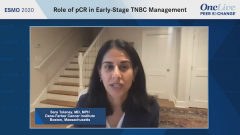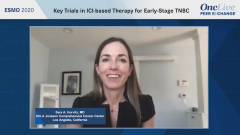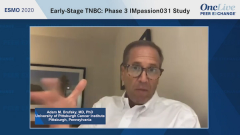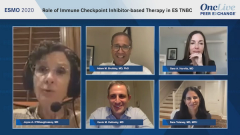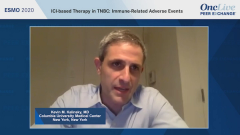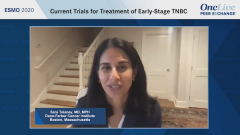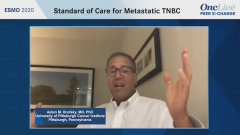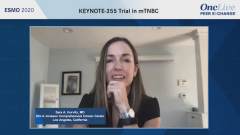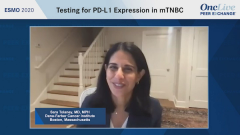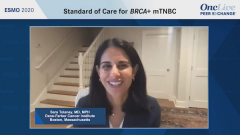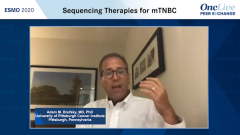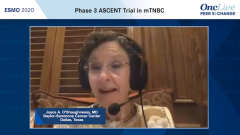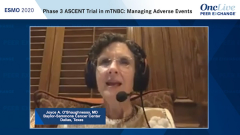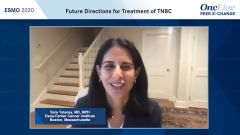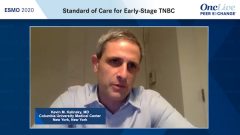
Standard of Care for BRCA+ mTNBC
Episodes in this series

Joyce A. O'Shaughnessy, MD: Let’s spend a little bit of time with a summary of where we are for patients with germline BRCA1/2 mutations in the metastatic setting. Sara, could you give us a summary of where we are on that?
Sara Tolaney, MD, MPH: We’ve all been excited to see the data that have emerged with PARP inhibitors for our patients with germline BRCA mutations. We have 2 phase 3 trials, OlympiAD as well as EMBRACA. OlympiAD had compared olaparib to standard-of-care physician’s choice chemotherapy, whereas EMBRACA had compared talazoparib in very similar design to choice of chemotherapy. Both trials did not allow platinum in the control arm and also did not allow patients who had progressed on prior platinum. Both studies very nicely demonstrated a statistically significant improvement in progression-free survival [PFS], both of them around a delta of about 3 months between the 2 arms favoring the PARP inhibitor over chemotherapy.
There were also nice analyses showing better quality of life in the PARP inhibitor arm compared to chemotherapy. We were all hoping to see larger differences, potentially, in terms of PFS, and also we were hoping to see a survival benefit, but neither study has demonstrated a statistically significant improvement in overall survival. There was this hint in the first-line subgroup analysis of OlympiAD that there was a trend toward better survival with olaparib compared to chemotherapy. That’s a subgroup analysis, and the overall studies did not show a survival benefit. Now, obviously it’s challenging because people do cross over.
In EMBRACA, about half the people on the chemotherapy arm crossed over to getting PARP, and some people go on to get platinum. It does make survival challenging to demonstrate. There are studies that are ongoing trying to look at adding agents to PARP to see if we can do better. We’ll certainly learn more as time goes on. It also sounds like we’re getting some new intriguing data that PARP inhibitors may also work outside of just germline BRCA patients. Nadine Tung, MD, had presented some data at ASCO [the American Society of Clinical Oncology annual meeting] that has shown that in patients who have somatic BRCA mutation, so the mutation in the tumor rather than a germline mutation, had about a 50% response rate. So very similar to the response rates that we see in the germline BRCA population.
Obviously this is a small group of patients. Some have reported maybe around 2% or 3% of our patients have somatic BRCA. Then there were also really impressive data in germline PALB2 suggesting that olaparib had about an 80% response. This is a tiny trial that had 11 patients, and I think 9 out of 11 patients had a partial response and the other 2 had stable disease. That’s a pretty big home run to have that level of activity. They are expanding that trial to get larger numbers of patients in the somatic BRCA and germline PALB2 subgroups. We’ll get better numbers, but I think definitely there’s a hint that PARP inhibitors can have activity in those 2 groups as well.
Joyce A. O'Shaughnessy, MD: Thank you. That was very exciting. Yes, we’ve enlarged the group of patients, I think, that can benefit. I think that was practice changing. Let’s look for those somatic BRCA1 mutations on our NGS [next-generation sequencing]. If you find germline PALB2, let’s use the Nadine Tung data to get preauthorization for a PARP inhibitor. I thought that was really practice changing. Thanks a lot, Sara.
Transcript Edited for Clarity


